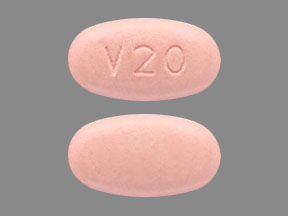
Voquezna Coupons & Savings Card – Discount Prices from $687.59
My prescription
Edit
20MG, Voquezna (30 Tablets)
Select pharmacy

CVS
$716.53
COUPON PRICE
Albertsons
$687.59
COUPON PRICE
Walmart
$710.71
COUPON PRICE
Walgreens
$721.70
COUPON PRICEVoquezna savings card
Show this card to your pharmacist
Albertsons
$687.59
BIN
ID
PCN
GRP
019876
LH48AE8ADF
CHIPPO
LHX
Powered by
More prescriptions for heartburn
More prescriptions for heartburn
Price history for Voquezna
30 Tablets, 20MG
Average retail price for Voquezna
Average SaveHealth price for Voquezna
Our price history data is based on aggregated prescription data collected from participating pharmacies in America. Our prescription data updates daily to reflect the latest price changes. If you notice a missing data point, it means there wasn't sufficient data available to generate a monetary value for that date.
*Retail prices are based on pharmacy claims data, and may not be accurate when we don't have enough claims.
Voquezna dosage forms
Dosage Quantity Price from Per unit 10MG 30 Tablets $687.86 $22.93 20MG 30 Tablets $687.59 $22.92
| Dosage | Quantity | Price from | Per unit |
|---|---|---|---|
| 10MG | 30 Tablets | $687.86 | $22.93 |
| 20MG | 30 Tablets | $687.59 | $22.92 |
What is voquezna prescribed for?
Voquezna is prescribed for the treatment of Helicobacter pylori (H. pylori) infection in adults. It is typically used as part of a combination therapy to eradicate the bacteria and reduce the risk of developing gastric ulcers.
Is Voquezna better than Omeprazole?
The effectiveness of Voquezna versus Omeprazole can depend on the specific condition being treated and the individual patient's response to the medication. Both are used to treat conditions related to excess stomach acid, but they may have different mechanisms of action, side effect profiles, and dosing regimens. It is important for a patient to consult with their healthcare provider to determine which medication is more appropriate for their specific situation.
Why is Voquezna so expensive?
Voquezna, like many other medications, can be expensive due to several factors. These may include the costs associated with research and development, clinical trials, regulatory approvals, manufacturing, and marketing. Additionally, if the medication is under patent protection, there may be limited competition, which can also contribute to higher prices. Insurance coverage and pricing strategies by pharmaceutical companies can further influence the cost to consumers.
Does Voquezna really work?
Voquezna is a medication used to treat certain gastrointestinal conditions. Its effectiveness can vary depending on the specific condition being treated and the individual patient's response. Clinical studies and patient reports generally support its efficacy for its approved uses. However, it is important for patients to follow their healthcare provider's guidance and report any concerns or side effects they experience while using the medication.
Does Voquezna lower potassium levels?
Voquezna, which contains vonoprazan, is not known to lower potassium levels. It is a potassium-competitive acid blocker used to treat certain stomach and esophagus problems. If there are concerns about potassium levels, it is advisable to consult a healthcare provider for further evaluation and guidance.
